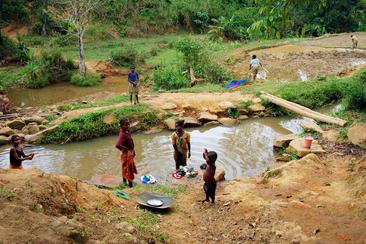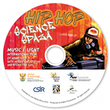What are water borne diseases?

We all know that fresh water is important for keeping us hydrated and healthy, but did you know that it’s not enough for there to be fresh water, but that it has to be clean too? Sadly many water sources are contaminated and can be home to a variety of disease-causing microbes that can give you sicknesses like cholera, typhoid fever and dysentery.
Water borne diseases are mostly transmitted by being in or consuming contaminated water. Fresh water can be contaminated by many things, especially if the water source is near urban areas or townships. Litter, excrement, and decaying matter all can contribute to contaminating a water source. Bacteria like E.coli thrive in contaminated water and can be the cause of many diseases with symptoms that range from diarrhoea to severe dehydration and even death!
Wisdom from our clubs!
“I say they must boil it before drinking
because I just want them to be aware
how much danger polluted water can bring”
-Pathogenic Scientific Killers (Mehlokazulu Science Club)
Tips on staying healthy
There are many ways to stay safe and healthy. Make sure that any water you drink is clean and clear. You can do this by boiling it first to kill all the disease-causing microbes that could be living in it. You can also make sure that if you go swimming in a river or dam that there are no dead animals contaminating the water. Also be sure that if there are people living next to the river you don’t swim down stream from them in case there are contaminates coming from the settlement. Remember to never drink water from puddles or small ponds because still water like that is more likely to be contaminated. You can also fill up bottles of water at a tap you trust like at your school or at home to drink later.
Interested in water borne diseases? Look out for Hip Hop Health activities and songs, delivered straight to your Science Spaza clubs with your next Spaza Space. With it you will find activities that will teach you how to test water for contamination! These activities are brought to you by Science Spaza and supported by the Wellcome Trust.

